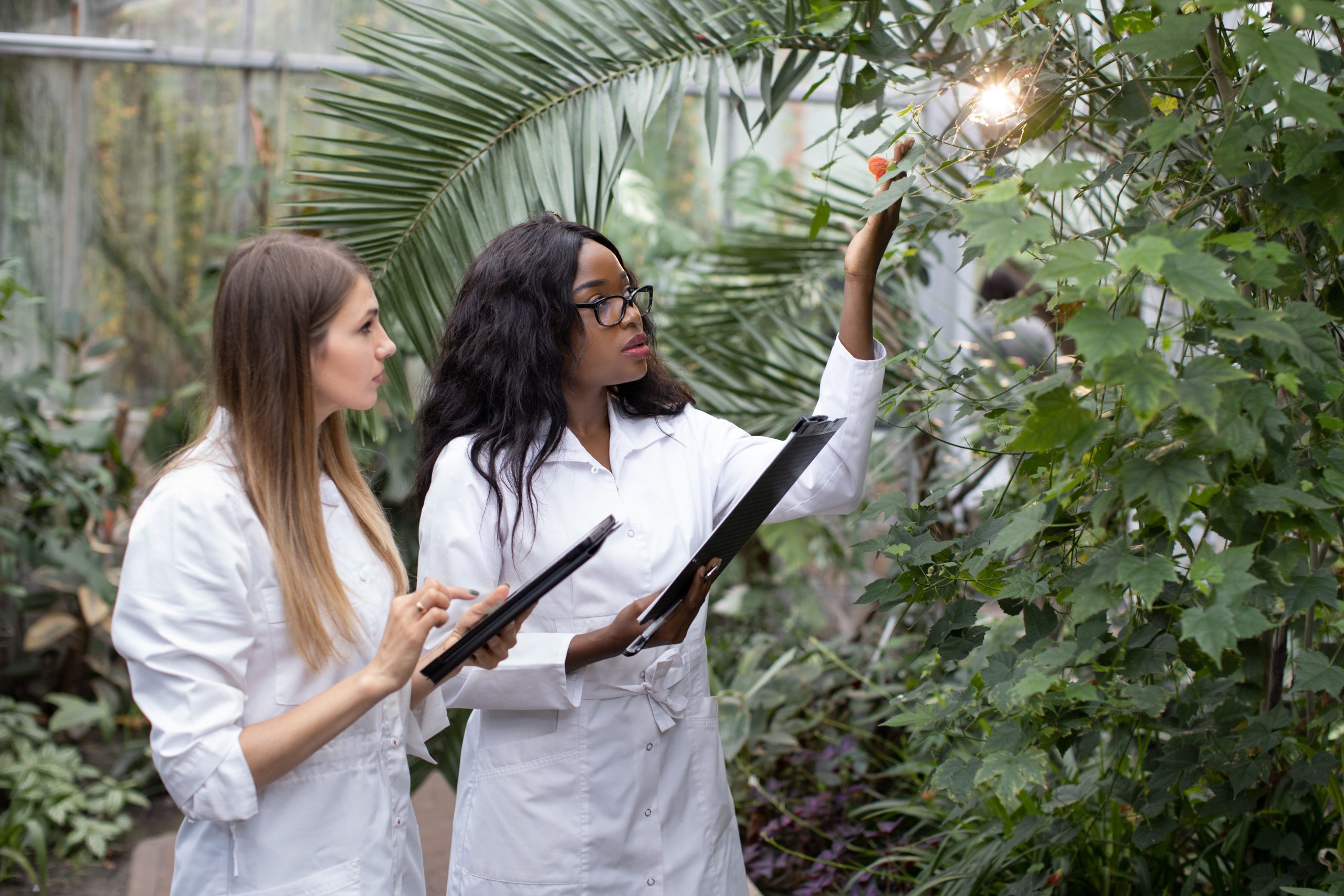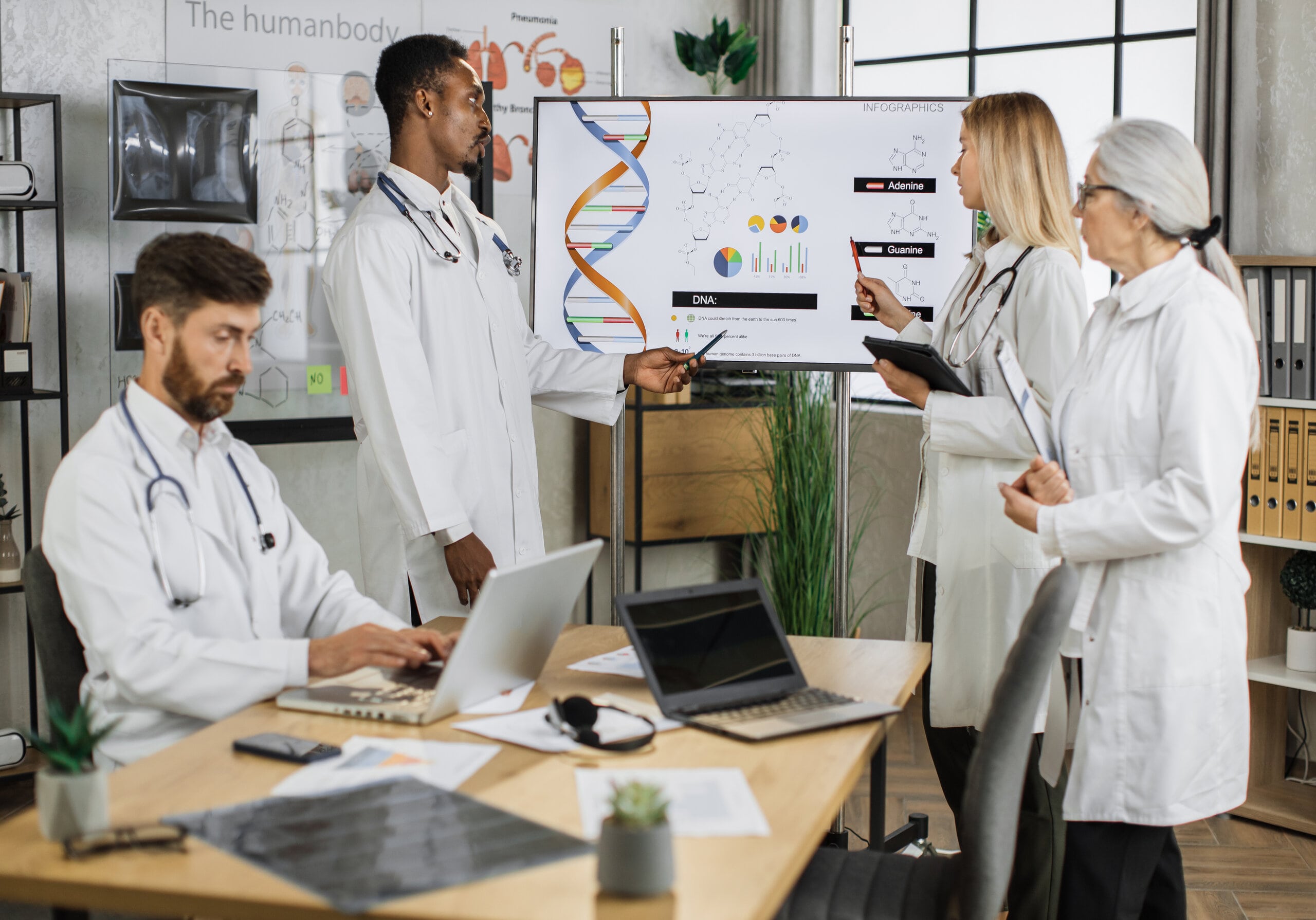Welcome to Open Learning College – Change your career, Increase your salary, and Improve your life.
 Course Overview
Course Overview
Embark on a transformative learning journey with the UK’s most innovative home study provider, offering courses designed to unlock your true potential and facilitate the career change you desire. Access our distance learning courses directly from anywhere, anytime, and acquire industry-recognised Professional Qualifications essential for advancing in your career.
Specifically, explore the flexible and convenient Botany (Level 3) course, an ideal way to gain a diploma qualification. Whether you aim for further education, improved job prospects, or expanded knowledge, this comprehensive course allows you to prepare thoroughly for exams or careers through home study. Plus, it’s structured to be accessible and beneficial even if you have no prior knowledge in Botany.
Botany, the study of plants, fungi, and algae, is a fascinating field with immense relevance to our daily lives and the future of our planet. As a botanist, one delves into the intricate biology of plant life, exploring everything from their cellular structures to their ecological roles. This course in Botany offers a comprehensive introduction to this captivating subject, providing students with a deep understanding of the world of plants and its myriad applications.
One of the key aspects of botany highlighted in this course is the profound impact of human-plant interactions. From ancient times to the modern era, humans have relied on plants for sustenance, medicine, and even cultural practices. Understanding these interactions is crucial in today’s technologically advanced world, where innovations in agriculture, pharmaceuticals, and environmental conservation rely heavily on botanical knowledge.
Moreover, the historical significance of botany is emphasised throughout the course. Botany has roots in ancient practices like herbalism and plant identification, which were essential for survival and medical treatment. Over time, botanical gardens emerged as centers of research and education, initially associated with monasteries and later integrated into universities. This rich history underscores the importance of botanical knowledge in shaping human civilisation and scientific progress.
Today, advancements in technology, such as powerful microscopes and sophisticated biochemical techniques, have revolutionised the study of plants. Botanists now have unprecedented tools to explore the intricate mechanisms of plant growth, development, and metabolism at the cellular level. These advancements have not only deepened our understanding of plants but also opened new avenues for harnessing their potential in various fields, including medicine, agriculture, and biotechnology.
In essence, this Botany course offers students a holistic perspective on the world of plants, highlighting their significance in past, present, and future contexts. By delving into topics ranging from basic plant biology to cutting-edge research, students gain valuable insights into the diverse and dynamic realm of botany, empowering them to contribute meaningfully to the study and stewardship of plant life.
 Course Key Topics
Course Key Topics
the Botany (Level 3) course is divided into 10 modules.
Module 1: Introduction to Botany
Plant life makes up 98% of the earth’s biomass (the dry weight of all living organisms). Plants (with a few other organisms) have the exclusive capacity to sustain life by producing oxygen using the sun’s energy by converting carbon dioxide and water. Botany has many different branches and so its scientific status and the various divisions associated with botany is explored. The second part of the module commences by defining the properties of life, before moving onto examining how life began on Earth millions of years ago. The basic building blocks of life, the cell, including structure and function of cell components unique to plants cells e.g. the chloroplasts that contain thylakoids where photosynthesis occurs will then be discussed.
Module 2: Vegetative anatomy
A detailed examination of the anatomy of the various tissues and structures found in plants is performed. Plants are basically divided into three organs, roots, stems and leaves. A fourth organ, flowers is found in a subdivision of plants. All organs consist of tissues, so overview of meristematic tissues, which has permanently growing regions, is conducted, e.g. there are trees thousands of years old. Specific topics covered include development, structure and specialisations with the roots and the stem. The structure, types, arrangement, specialisation and seasonal loss of leaves is discussed, e.g. rolled leaves that reduce water loss or insect-trapping leaves.
Module 3: Plant physiology part 1: Metabolism
If plants produce food and oxygen, using energy for all living things, how do plants maintain life and obtain nutrients? The main processes involved with the movement of water e.g. up a narrow tube to travel up and down the stem, light, nutrients and particles around an organism is explored. The processes of osmosis, diffusion and transpiration will be examined. Humans get many products, apart from food, from plants such as cigarettes, rubber, thatch, medicines, and these are discussed. The second section deals with enzymes and energy transfer, including photosynthesis and respiration which concern the main movement of gases in and out of plants.
Module 4: Plant physiology Part 2: Reproduction and growth
In 1893, the US Supreme courts rules that tomatoes are legally a vegetable simply because it was used as a salad vegetable. However, Botany considers all fruits, including a tomato, as being an ovary, matured with its accessory parts. Many smaller plants do not have flowers, and the way they reproduce and spread their seeds is covered. We begin by looking at the life of a plant, right from the seed up to maturity. The large range of strategies used by plants to ensure reproductive success is summarised, including a discussion of flowers, dispersal of fruits and seeds, e.g. a coconut, apricot, cereals, nuts or a berry. The development of a plant from a seed/spore is then examined, including discussions of cell division, plant hormones, plant movements, adaptations e.g. for seed dispersal, photoperiodism (seasonal variations), and the link between temperature and growth.
Module 5: Genetics, evolution and classification
Life began with a simple cell, how then have they developed and evolved to form the rich diversity that exists today? The focus of this section is on the processes by which individual plant species change and are changing so that new species continue to develop. The history, methods of research and discoveries e.g. those of Lamark, Mendel and Darwin are explored. Plant genetics on a micro, individual cell level (meiosis) is discussed and the implication of these activities through time by examining the processes of evolution is considered. The current system of classifying plants is discussed.
Module 6: Diversity; Part 1. Plant like organisms
There are some organisms that are difficult to classify as plants or animals, but are studied under Botany and this topic area of Diversity is split up across three modules. The first section covers of a fairly odd collection of life forms, a brief review of bacteria and viruses will be followed by a more in depth examination of algae, slime moulds, Fungi and lichens. The numbers and diversity of each is so enormous, that we are at the present time unaware of each and every type. Also those we do know are constantly developing and changing.
Module 7: Diversity; Part 2. Simple green plants
This unit examines the most ‘primitive’ of those organisms commonly considered as simple green plants. Liverworts and mosses are plants with no vascular systems, and ferns are considered to be the most primitive vascular plants. These plants developed early on in the earth’s life (pre-Cambrian) and it is thought that all modern organisms arose from these basic-type of organisms. Structure, reproduction, evolution and classification of these ‘primitive’ plants are examined, as well as their current importance to humans.
Module 8: Diversity; Part 3. Seed plants (Gymnosperms) and flowering plants (Angiosperms)
The non-flowering seed vegetation are discussed in terms of their evolutionary position and when they first appeared within the plant world. Their structure, life cycle and classification is explored. How seeds differ to spores, the reproductive vessel of earlier organisms is discussed. The differences between gymnosperms (translated as ‘the naked seed’ or seeds not enclosed in a fruit) and angiosperms (‘seed in vessel’), the flowering plants which are the most widespread group of land plants is examined. They are considered in depth by looking a few key examples by studying their evolution, life cycles (including animal pollination) and classification of the flowering plants.
Module 9: Ecology and Phytopathology
This module in the diploma is in two parts, ecology and phytopathology. Ecology is defined as the relationships of living organisms to their organic and inorganic environment. Producer, consumer and decomposer relationships (food chains and pyramids) and how the flow of energy and chemicals within the biosphere is investigated to show the distribution of organisms. This is linked to the morphology and physiology of plants in the way they survive, grow and reproduce. The second topic is a brief overview of phytopathology defined as plant diseases. It can be categorised into two main divisions, infectious organisms and physiological disorders. The impact of plant diseases and their management affects humans greatly and gravely, so the study of critical issues such as pathogens, life-cycle and the environment where their flourish is covered.
Module 10: Ethnobotany
The scientific study of botany arose out of the needs, relationship and usefulness of plants, herbs and their products to humans, and this is referred to as Ethnobotany. This is the complete study of relationships between (uses of) plants and cultures. A brief history of Ethnobotany is given. The focal point is how plants have been or are used, managed and perceived in human societies and includes plants used for food, medicine, divination, cosmetics, dyeing, textiles, for building, tools, currency, clothing, rituals social life and scientific study. How this has changed in modern times, Biodiversity, plant domestication, cultivation and conservation is explored.
(Please click on the curriculum tab above to see a detailed view of each module)
Course Content
Botany (Level 3) – FREE Starter Pack
How to…. (a series of explainer videos)
Module 1 – Introduction to Botany
Module 2 – Vegetative anatomy
Module 3 – Plant physiology part 1: Metabolism
Module 4 – Plant physiology Part 2: Reproduction and growth
Module 5 – Genetics, evolution and classification
Module 6 – Diversity; Part 1. Plant like organisms
Module 7 – Diversity; Part 2. Simple green plants
Module 8 – Diversity; Part 3. Seed plants (Gymnosperms) and flowering plants (Angiosperms)
Module 9 – Ecology and Phytopathology
Module 10 – Ethnobotany
Course Resources
Final Exam
College Announcements
🔍 Unlock the Secrets of Plant Life with £50 OFF the Botany Course! 🌿🌱
Ready to delve into the captivating world of botany? For a limited time only, we're excited to offer you an exclusive discount of £50 off our Botany Course Level 3!
Use code BOTANY50 at checkout before the month ends!
👣 Why Choose Our Botany Course
The Botany Course Level 3, presented by Open Learning College, is your gateway to a captivating realm of plant knowledge and skills. This comprehensive course delves deep into the fascinating world of plants, covering topics such as plant anatomy, physiology, ecology, and adaptation.
💪 What Makes Our Course Shine
Flexibility: Tailor your learning to your schedule, with 24/7 access.
Comprehensive Support: Benefit from our expert tutors' guidance throughout your journey.
Real-World Insights: Gain practical skills and knowledge vital for understanding plant life.
Don't miss this opportunity to explore the exciting world of botany at a discounted rate! Enrol now, use code BOTANY50* at checkout, and embark on your journey to becoming a plant expert. 🌸📚
*This discount code cannot be used in conjunction with any other offer.









 Get Social!
Get Social!











Michael Thompson